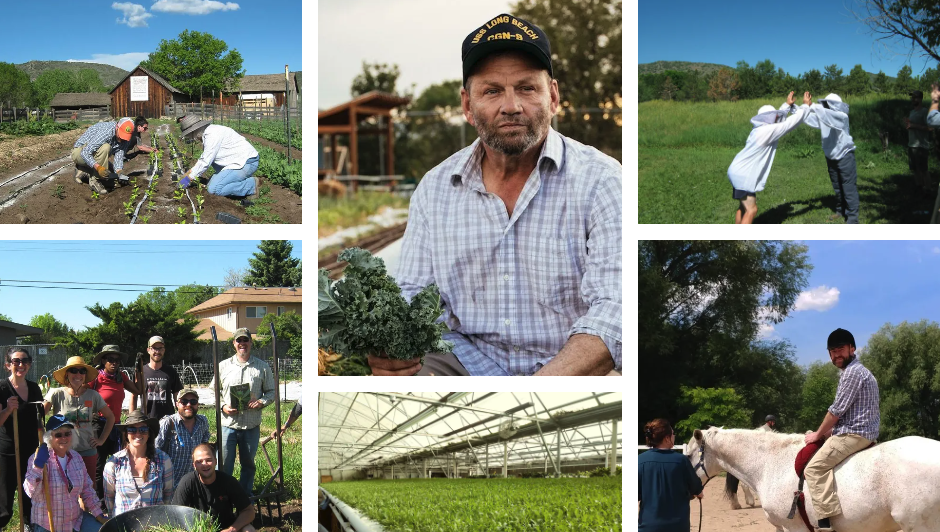
For some, the transition from serving in the United States Armed Forces to civilian life can be difficult. But one Denver organization is helping its members find purpose post-military. Veterans to Farmers is on a mission to train veterans in agricultural systems, technologies and business operations.
“Agriculture in general is a really good fit for veterans,” said Richard Murphy, executive director of Veterans to Farmers and a U.S. Air Force veteran. “That environment provides a therapeutic place. Nature in its own right is therapeutic. When you get into the dirt or listen to water running, it’s relaxing. Plus, being a veteran, you have a unique set of skills: attention to detail, understanding how to work harder and longer, not being willing to give up. Veterans have a skillset that they bring to agriculture that makes them more likely to succeed.”
A partnership with Colorado State University
Veterans to Farmers was born out of an idea founder Buck Adams had while establishing himself in the greenhouse industry in 2009. After launching his Circle Fresh Farms business, the U.S. Marine Corps veteran created a company initiative to hire veterans. Word eventually spread, and interest was high, so Veterans to Farmers was formed in 2013. A year later, Murphy, then a program director, began working with CSU Extension to establish a curriculum.
“I don’t have a traditional background in agriculture, it was something I did to personally relax,” says Murphy. “CSU was pretty much instrumental in establishing ourselves. It gave us validity, so it wasn’t just a crazy idea that some gardeners came up with.”
The organization currently has three training programs available to students: Hydroponics, Market Farming and the Urban Farming Series.
Hydroponics, or controlled environment agriculture, was the program that Veterans to Farmers originally launched with the help of CSU. Essentially, it teaches its students to grow crops in greenhouses without dirt. According to Murphy, the program lasts eight to 10 weeks and goes over all the topics one would need to get into greenhouse operations and management.
The Market Farming program is in partnership with the Denver Botanical Gardens. This 21-week class is structured like an internship on a farm, as students participate in everything from planting to harvest. Each student has their own plot at the gardens, but also helps with producing the Botanical Gardens’ overall growing program that feeds into local farmers markets.
Finally, the Urban Farming Series, which is open to veterans and families of veterans, is a series of one-day, topic-specific courses that touch on everything from building raised beds to seed saving to an introduction to garden botany. Murphy plans to add bread baking and food preservation classes in 2021.
Fostering a new generation of farmers
Despite reduced operations in 2020 due to the global pandemic, Veterans to Farmers was still able to celebrate its 150th graduate of the program this year.
“We feel that Veterans to Farmers provides well-rounded education in conventional and controlled environment agriculture, to include hands-on training and a high-level business planning component,” said Sally Herbert, owner of Altius Farms in Denver and a vice chairman of Veterans to Farmers.
Herbert, who served for 13 years in the United States Air Force, has hired three Veterans to Farmers graduates (one Army, one Air Force, and one Marine).
“Part of our mission includes ensuring we have veteran representation within our team, and Veterans to Farmers is a great resource for us to identify candidates,” said Herbert.
Aside from finding careers for people transitioning into civilian life, Murphy sees the purpose of Veterans to Farmers as an even higher one.
“By the end of the programs, they’ve done everything you’d need to do to bring food to market,” said Murphy. “But it’s also the perfect place to take seven to 10 veterans and allow them to create friendships. It’s creating community. We now have a community of 150 veterans. It’s been awesome to see it grow over the last eight years.”